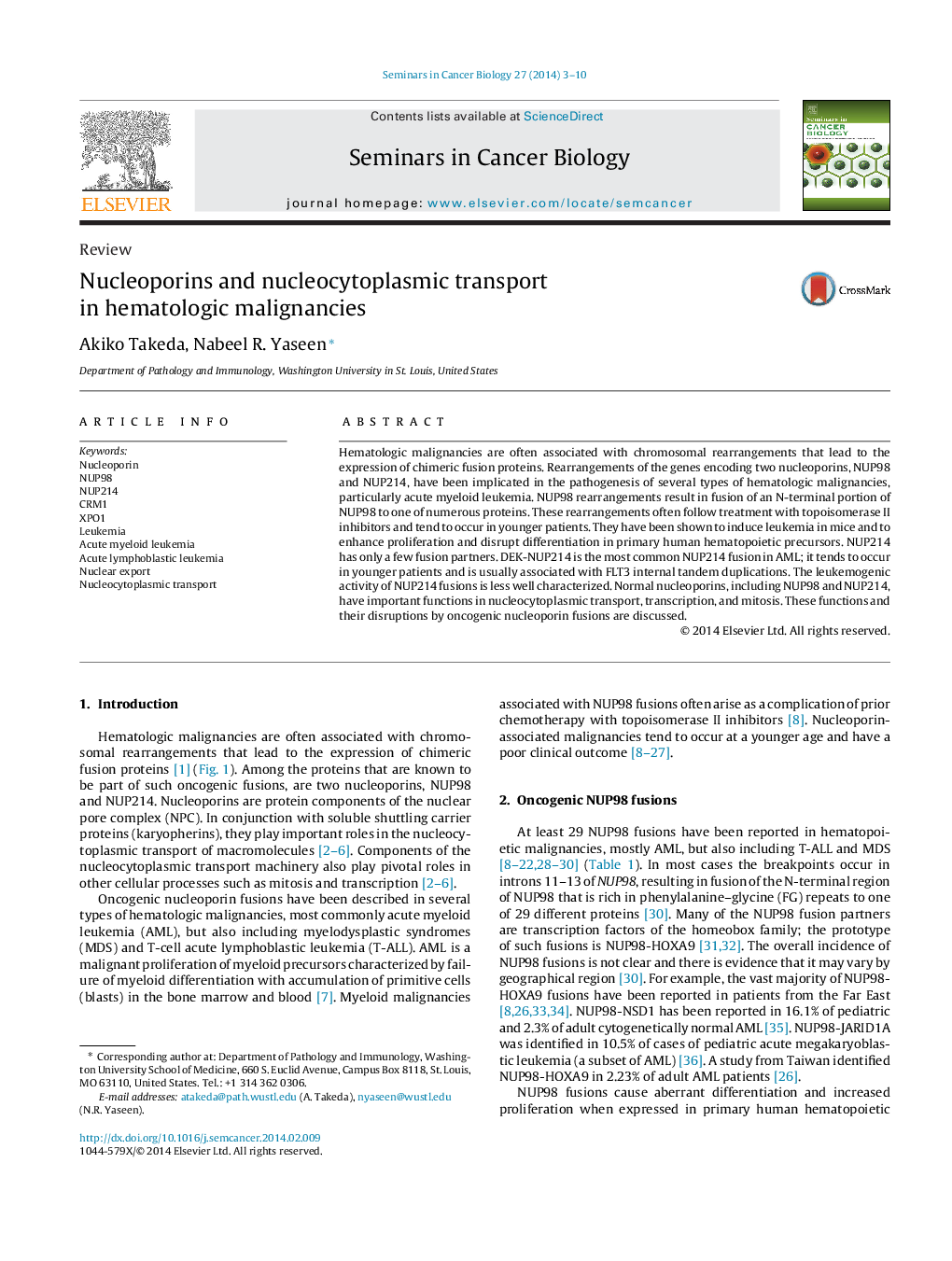| Article ID | Journal | Published Year | Pages | File Type |
|---|---|---|---|---|
| 2023687 | Seminars in Cancer Biology | 2014 | 8 Pages |
Hematologic malignancies are often associated with chromosomal rearrangements that lead to the expression of chimeric fusion proteins. Rearrangements of the genes encoding two nucleoporins, NUP98 and NUP214, have been implicated in the pathogenesis of several types of hematologic malignancies, particularly acute myeloid leukemia. NUP98 rearrangements result in fusion of an N-terminal portion of NUP98 to one of numerous proteins. These rearrangements often follow treatment with topoisomerase II inhibitors and tend to occur in younger patients. They have been shown to induce leukemia in mice and to enhance proliferation and disrupt differentiation in primary human hematopoietic precursors. NUP214 has only a few fusion partners. DEK-NUP214 is the most common NUP214 fusion in AML; it tends to occur in younger patients and is usually associated with FLT3 internal tandem duplications. The leukemogenic activity of NUP214 fusions is less well characterized. Normal nucleoporins, including NUP98 and NUP214, have important functions in nucleocytoplasmic transport, transcription, and mitosis. These functions and their disruptions by oncogenic nucleoporin fusions are discussed.
